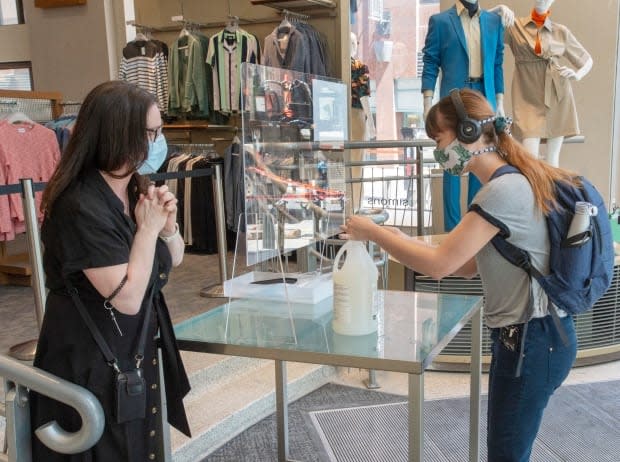Red, raw and really clean: Why it's important to take care of your hands during the pandemic
We're all supposed to be washing our hands numerous times a day — after using the bathroom, and before eating or cooking, at the very least.
But the COVID-19 pandemic has taken hand hygiene to a whole new level, with public health officials encouraging frequent handwashing as a way to help protect yourself from the virus that causes the disease.
While it's an effective measure, all that soap and sanitizer can be tough on the skin.
"It can cause a lot of problems," said Dr. Wayne Gulliver, a dermatologist in St. John's.
"You know, going from washing your hands, the usual three, four, five times a day to 10, 20, 30 times a day can induce a form of eczema called irritant contact dermatitis."
And that can lead to redness, dry or cracked skin and itching.

Gulliver said frequent handwashing, while necessary, can turn hand eczema into a chronic problem for people with a previous history of the condition. People who have a history of asthma, allergies and psoriasis are at increased risk for developing it.
Moisturize, moisturize, and moisturize some more
There are things you can do to help prevent reactions and keep it at bay, and the most important one is moisturizing the skin — first thing in the morning and regularly throughout the day.
"It will help because it protects the barrier of the skin and there's less water loss," Gulliver told The St. John's Morning Show.
"There are non-soap cleansers available now. They're not as convenient as the sanitizers, which, you know, is alcohol and a foaming agent which you just rub in. But if you have a non-soap cleanser, it still cleans the hands, but it doesn't strip the hands of the proteins that help keep the water in the skin."
Keep it simple
Gulliver recommends keeping soap and sanitizer as "clean" as possible. He said most hand sanitizers are made of either ethyl or isopropyl alcohol, but it's the extra ingredients that could contribute to problems.
"Some of them will have things like hydrogen peroxide, which you almost never see any issues with," he said. "But if they have perfumes, if they have essential oils, if they have aloe vera, there's always a risk that someone can become sensitized to those products. And so avoiding those, just keeping it as simple as possible will decrease your risk of developing contact dermatitis."
If your skin becomes raw, cracked or starts bleeding, Gulliver said, it's time to seek medical help — about 80 per cent of people who end up on workers' compensation via dermatologists are off the job due to hand eczema.

